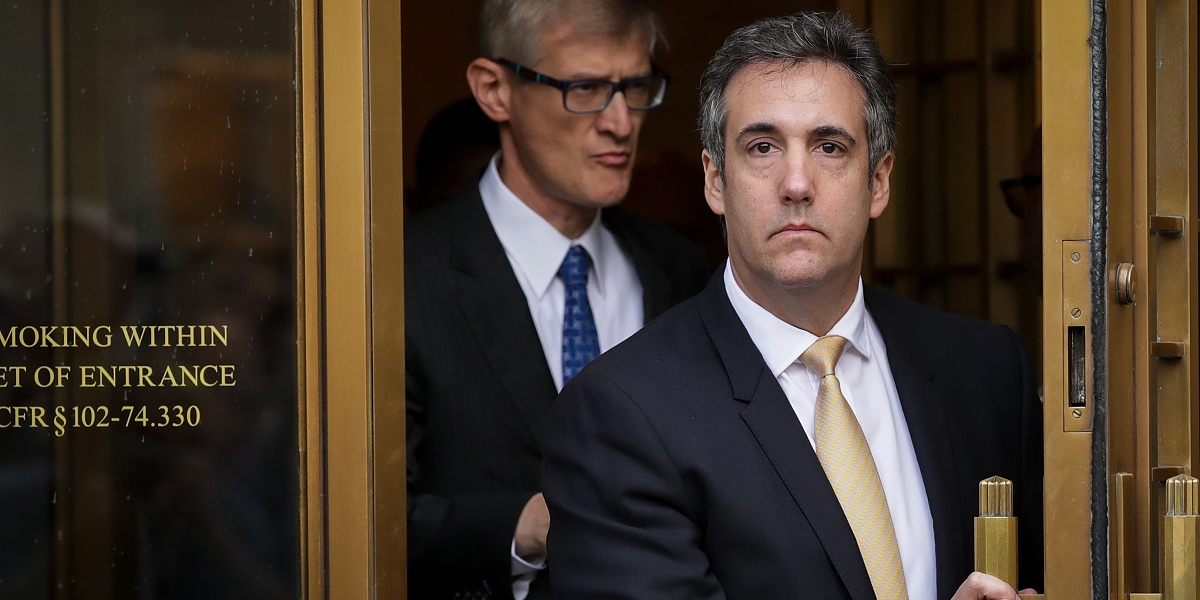- Prosecutors said in a Tuesday court filing that the Trump Organization approved $420,000 in reimbursements to Michael Cohen in connection to his efforts to silence women who claimed to have had affairs with Donald Trump.
- Cohen pleaded guilty to eight counts related to tax evasion, bank fraud, and campaign finance violations.
- Cohen said he broke campaign finance laws “at the direction” of Trump.
The Trump Organization approved $420,000 in reimbursements to Michael Cohen related to his efforts before the 2016 election to silence women who claimed to have had affairs with President Donald Trump, according to new court filings.
Cohen pleaded guilty on Tuesday to five counts of tax evasion, one count of bank fraud, one count of making an illegal corporate contribution, and one count of making an illegal campaign finance contribution.
Cohen said he made the corporate and campaign finance contributions “at the direction” of Trump.
According to the charging document, prosecutors say Cohen approached Trump Organization executives asking to be reimbursed for “election-related” costs following the election, and that he began receiving the payments in February 2017.
Trump's lead defense attorney, Rudy Giuliani, previously confirmed that Trump reimbursed Cohen for his payments to women, which included a $130,000 hush money deal with the porn star Stormy Daniels in the days before the 2016 election.
Giuliani said Trump's payments to Cohen's were made for his legal services, and Trump later said on Twitter that he paid Cohen back via a monthly retainer in order to stop "false and extortionist allegations" about an alleged affair with Daniels.
But Tuesday's filing offers the most detailed look yet into the full scope of Trump's payments to Cohen and how they were made.
Specifically, prosecutors say Cohen "sought reimbursement for that money by submitting invoices to the candidate's company, which were untrue and false."
"They indicated that the reimbursement was for services rendered for the year 2017, when in fact the invoices were a sham," the document said.
Legal experts said Tuesday that Cohen's statement that he violated campaign finance laws at Trump's direction opens the president up to potentially significant criminal liability.
Trump could face scrutiny "on some combination of solicitation, aiding and abetting, and conspiracy," said Andrew Wright, a former associate in the White House counsel's office under President Barack Obama.
"If Donald Trump conspired with Cohen to commit felonies as a candidate, the only thing that might protect him is the question of whether he couldn't be indicted for the duration of his tenure in office," he added.
Current Department of Justice (DOJ) policy states that a sitting president cannot be indicted. Legal scholars said that while Mueller or other federal prosecutors will likely not charge Trump because of that, he may be listed in court documents related to Cohen as an un-indicted co-conspirator.
Mitchell Epner, a former federal prosecutor from the District of New Jersey, noted that Trump would not be shielded from criminal prosecution once he leaves office.
Giuliani said Tuesday that "there is no allegation of any wrongdoing against the President in the government's charges against Mr. Cohen. It is clear that, as the prosecutor noted, Mr. Cohen's actions reflect a pattern of lies and dishonesty over a significant period of time."
But the former federal prosecutor Renato Mariotti pointed out that if Cohen's statements today were contradicted by other evidence prosecutors have, or if they did not believe Cohen, prosecutors would not have accepted the plea.
Cohen's guilty plea means he would be available as a witness in any potential prosecution of Trump during or after his presidency. He could also implicate others in criminal wrongdoing, who may in turn have evidence against Trump and testify to that in order to protect themselves.

